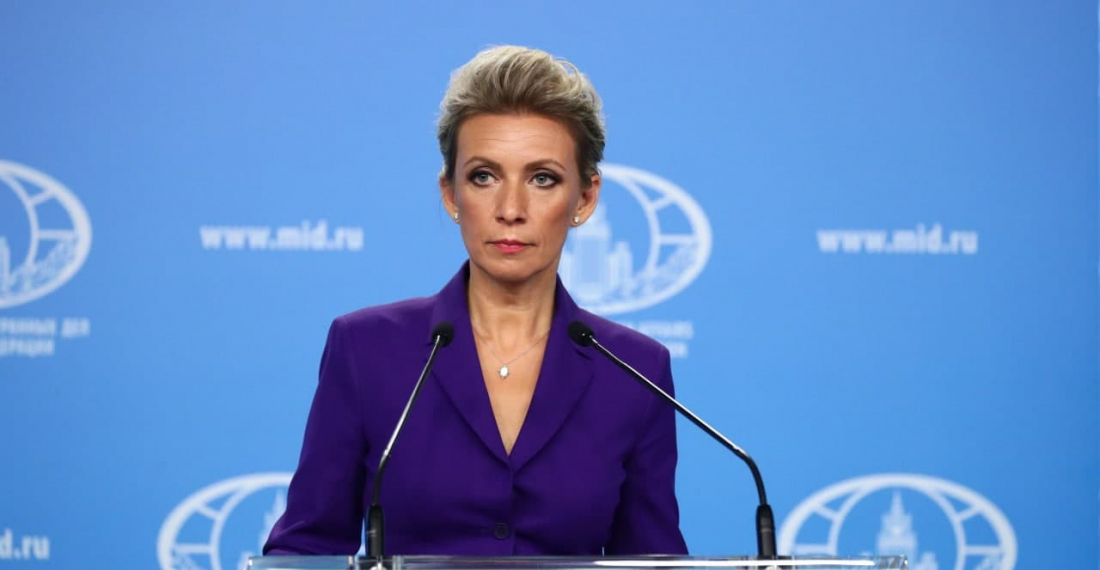Maria Zakharova, spokesperson for Russia’s Ministry of Foreign Affairs (MFA), yesterday (22 July) expressed concern over the recent escalation in tensions on the Armenian-Azerbaijani border following multiple clashes between the countries' forces earlier this week. In questions from journalists during her weekly briefing, Zakharova noted that the border tension “has an extremely negative effect on the regional situation, does not contribute to the normalisation of the dialogue between Azerbaijan and Armenia, and leads to unjustified losses among the population of the two countries.”
Zakharova was asked about Armenian reports of provocations by Azerbaijani troops on the countries’ border; the Azerbaijani president’s comments about parts of de jure Armenia being Azerbaijani native lands; and the prime minster of Armenia’s claim that Azerbaijan is refusing to provide the Armenia-Georgia-Azerbaijan-Russia corridor, hindering the opening up of transport routes agreed in the trilateral statements. The MFA’s spokesperson gave a summarising response, emphasising the attention that Russia is paying to the Armenia-Azerbaijan border situation and extending her condolences to the family and friends of the Armenian serviceman killed on the border by a sniper last week. She then re-affirmed the Russian position that “the settlement of border incidents should be carried out exclusively by political and diplomatic measures. It is imperative to refrain from confrontational rhetoric or forceful methods.” She continued, “We are convinced that sustainable de-escalation can only be ensured by the immediate launch of work on the delimitation of the border between Azerbaijan and Armenia with its subsequent demarcation”, noting that Russia was ready to support this exercise.
Zakharova drew attention to Russia’s President Putin’s recent meetings with the leaders of Armenia and Azerbaijan, stating their commitment to find optimal solutions despite the complexity and magnitude of their tasks, and to implementing the agreements of both the 10 November 2020 and 11 January 2021 trilateral statements. She finished by praising the work of the trilateral working group – co-chaired by the deputy prime ministers of Armenia, Azerbaijan and Russia – expressing hope that they would soon be meeting again to organise infrastructure projects that benefit Armenia, Azerbaijan and the region as a whole.
Disputes on the Armenia-Azerbaijan border have taken place since 12 May, when Armenia accused Azerbaijani troops of crossing the border and situating themselves within Armenia’s sovereign Syunik and Gegharkunik provinces. Azerbaijan has maintained that its troops are on Azerbaijani territory. Armenia has formally requested the triggering of the Collective Security Treaty Organization’s (CSTO) collective security treaty over the situation; however, the organisation has since designated it a “border incident”, which thus, does not fall under the treaty’s provisions.



